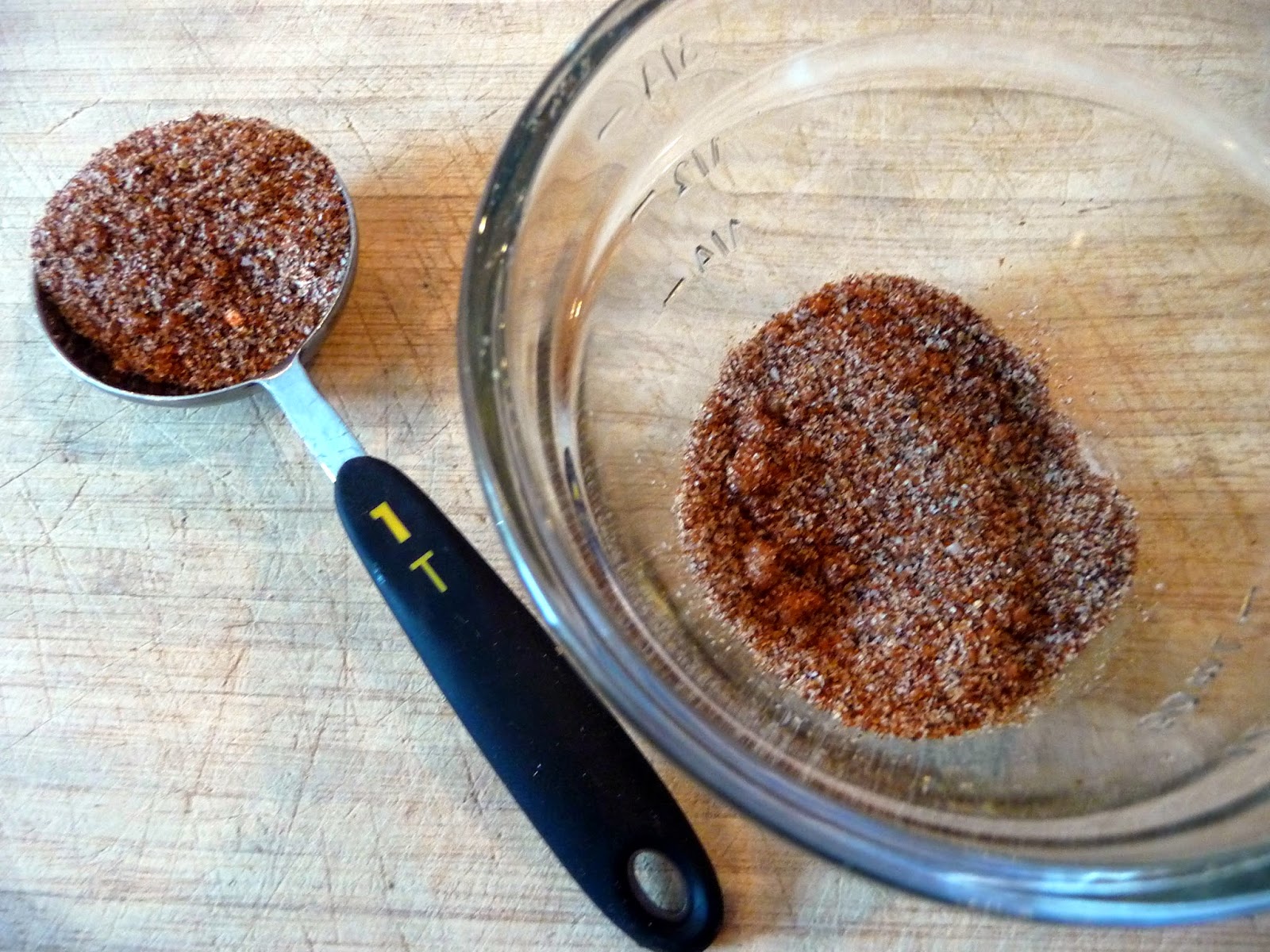
In some respects, more is better, at least in my opinion. If I find a marinade or rub recipe, I will often look at the number of ingredients. There are certainly some great recipes that incorporate only two or three ingredients. A steak that is marinated in oil, garlic and sea salt will definitely be a tasty dinner.
However, I look for recipes that may incorporate six or more ingredients. Those recipes can present much more of a challenge. Each ingredient has to take in account all of the other ingredients. You have to take into account the flavors, the "intensity" and proportions. A rub with three ingredients is fairly easy to develop and manage. A rub with nine or ten ingredients becomes much harder. The goal is to make sure each ingredient can be ascertained as much in the final product. If one is not careful, then he or she can "lose" an ingredient in the mix. In that case, it is as if you never used it in the first place. A spice mix of six ingredients may only taste like there were three. The whole effort results in a loss.
Recently, I found a recipe for a "Lone Star" rub on a blog called "Grogs4Blogs." Along with the recipe, there was a very good discussion of what makes for a good dry rub. A good rub, just like a good wet marinade, can be reduced to a very simple and straightforward equation, which was described by Adam Perry Long, the author of Serious Barbecue. The equation is as follows: Color Base + Salt + Sugar + Flavor + Heat.
The ingredients of the Lone Star rub can be organized according to this equation. The color base is paprika, which serves as a common base for many rubs used in grilling and smoking. The salt and sugar are self-explanatory. The flavor comes from the use of onion powder, garlic powder, cumin and cinnamon. Onion and garlic powder are about as common of flavor elements as paprika is a color base. Cumin is also used frequently in spice mixes. By contrast, cinnamon is much less common in spice mixes, especially those destined to be applied to large steaks that will end upon the grill. Yet, the sweet and "spice" of the cinnamon was clearly detectable in both the rub and the finished product. Finally, the heat was the chile spice. The recipe did not identify any particular chile, which I usually take to mean that generic "Mexican chile" or "chile" spice you find in the spice section of most grocery stores. When I made this recipe, I decided to use some ground New Mexican hatch chiles, which provided just enough heat to balance the flavor elements in the rub.
Although I found the recipe on the Grogs4Blogs website, the blogger relied upon a rub recipe from Jamie Purviance, who is a chef and cookbook writer. Chef Purviance has his own website,which is associated with Weber Grills.
I managed to find a couple of other websites that had Chef Purviance's Lone Star rub. Those recipes tracked the one on Grogs4Blogs with one exception. The other recipes included dried majoram. This raised a question in my mind. Why did the blogger at Grogs4Blogs leave out one of the ingredients in the mix. Majoram is used in many herb and spice mixes such as Herbes aux Provence and Za'atar. It pairs well with onions and garlic, and other herbs like rosemary. However, majoram does not pair as well with the other flavor and heat ingredients of the Lone Star rub, such as chile, cumin and cinnamon. That may have been the reason why it was left out of the recipe.
In any event, the next time I try this recipe, I might just add back in that 1/2 teaspoon of dried majoram to see if it adds to the flavor of the rub or just gets lost in the mix.
LONE STAR RIBEYE
Adapted from recipe published by Grogs4Blogs
Serves 4
Ingredients:
2 teaspoons salt
1 1/2 teaspoons chile powder
1 1/2 teaspoons onion powder
2 teaspoons salt
1 1/2 teaspoons chile powder
1 1/2 teaspoons onion powder
3/4 teaspoon garlic powder
1/2 teaspoon paprika
1/2 teaspoon sugar
1/4 teaspoon ground cumin
1/4 teaspoon freshly ground black pepper
1/8 teaspoon ground cinnamon
4 dry-aged, bone-in rib eyes, 12 to 16 ounces and 1 2/3 inches thick
2 tablespoons extra virgin olive oil
2 limes, cut into wedges (optional)
2 tablespoons extra virgin olive oil
2 limes, cut into wedges (optional)
Directions:
1. Prepare the steaks. Combine all of the rub ingredients. Brush the steaks with the olive oil and then apply the rub to all sides of the steak, massaging the rub into the meat. Allow the steaks to stand at room temperature for 20 to 30 minutes before grilling.
2. Grill or cook the steaks. Heat the grill on high or the heat the broiler in the oven. Grill or broil the steak for about six minutes and then flip the steak. Grill or broil for about 4 minutes more.
3. Finish the dish. Remove the steaks from the grill or broiler and tent with foil. Let the steaks rest for five minutes and serve with the lime wedges.



No comments:
Post a Comment